#Dancing Gods
Explore tagged Tumblr posts
Text
Novel Snow
Up here in the Great White North, we finally got some snow last month, which is probably a good thing (moisture to help ameliorate next year's forest fire season, hopefully, and increase the Earth's albedo), though it can also be inconveniently cold. Meanwhile, I read some books last month and I'm going to tell you about them.
Possible spoilers below for Jack L. Chalker's Dancing Gods series, Gerald Brandt's San Angeles series, and Lois McMaster Bujold's Penric series. (I generally try not to spoil the actual book I'm talking about, but no promises for earlier books in the same series.)
Jack L. Chalker: Demons of The Dancing Gods, completed November 3
Continuing with my "Dancing Gods" series reread. The first book, The River of Dancing Gods, was named after an actual hydrographic feature in the book's fantasy world, though it wasn't super-relevant to the plot. And also, there was no mention of what dancing gods the name of the river might even be referring to. I guess it's possible I'll find some reference to them that I'm forgetting about, but at the moment it seems like it's just being used as a repeated title element to indicate the books are in the same series…which means it might have been done strictly for humorous purposes as a fantasy pastiche. But it does indicate that maybe there might be demons in this book.
For reasons that I can't quite recall right now, the back cover of my copy of this book is extremely tattered. It looks like it may have been chewed on by some kind of animal, perhaps? (I may have to include an actual picture of it to do it justice.) I can't even recall if it was like this when I bought it (doubtless second-hand, but even then, I don't think most stores would stock it like that), or what animal might have chewed on it if it happened after I bought it. Anyway, it makes it low-key a bit annoying to read, like any cover abnormalities do.
The best thing I have to say about this book is that it introduces the one element that I remembered about the series even years later. One of the characters (Joe the former trucker, a.k.a. barbarian warrior Joseph the Golden) gets bitten by a pekingese dog and discovers that he has been inflicted with the curse of the were. He is not a were-pekingese, though--he is just a "were". Which means that every night of the full moon, when the sun goes down he turns into…whatever animal he is closest to. An identical copy of that animal. And that includes humans (and, in the context of the world, fairies, too). I don't know if this concept was ever used anywhere else, or if it's unique to Chalker, but it's pretty interesting. And of course they use it several times in the plot, and while at least once they completely forget about the effect until it happens, overall it's portrayed mostly as a boon.
The book as a whole, though, does not hold up. It takes forever for things to get moving, and it's just like…go here, and have an incident on the way. Then have some boring description and local colour, and some half-assed satirical references. Marge becomes more fully a fairy (a made-up kind of sex fairy, to be specific) and alternates between angsting about it and losing her entire personality for a stretch of time. The "were" thing happens randomly in the middle of a wizard's convention (and said convention doesn't even get used for any proper convention jokes--where's the funny panel concepts?) and seems entirely serendipitous/gratuitous. A new female character is mentioned and gets a backstory but barely any personality. The main bad guy turns out to be supposedly motivated by trying to improve the world, by bringing over innovations from our world, and is defeated in a magical duel by the living manifestations of the bad things about modern society. The underlying worldview of the book seems to be pretty fatalistic; bad things will always exist, corruption is the same everywhere, everybody will do bad things if they get into power, etc. And by and large, the plot feels…perfunctory. The whole book feels perfunctory. And are there more demons than the first book? Not so's you'd notice.
So that's two strikes against keeping it--bad physical condition, and underwhelming contents. But there's still three more books in the series, which I am not 100% committed to finishing, but I guess I'll try. If there isn't improvement in later books, though, odds are the whole thing will get weeded. (And the ragged Demons copy will get thrown out.)
James Clemens: Wit'ch Fire, completed November 8
This is the next random new author trying, male edition (i.e. the book I was technically supposed to be reading last month instead of The Art of Prophecy). Definitely picked this one up second-hand, it still had the sticker on the cover, and I knew little or nothing about it. The reason it bubbled up to the top of the list is because I saw the cover somewhere, probably in one of those "have you read this book" poll accounts.
If I had a nickel for every book I read this year with an in-universe (Watsonian?) introduction talking about the book, this would be getting me my third nickel. First one was You Feel It Just Below The Ribs, the "Within The Wires" podcast tie-in book; second was the Jenn Lyons The Ruin of Kings. This one is warning its readers about how dangerous this book is (because its author lied, of course), and that the only reason that they get to read it is because they're taking a course about it, as part of an attempt to demystify this long-banned book by trying to associate it with boring academia. Unlike the other two, it doesn't actually contain footnotes and commentary throughout or not, so I'm not sure what the point of it is.
So the original book comes from 200-300 years before the introduction, and what does it do right away? Include an except from even farther back, like 500 years or so, as a prologue. What's most jarring to me about that, though, is that this 750-year-old ancient text is…written in modern prose in what looks like standard close third-person. In our modern, non-fantasy world, you go back that far and, well, you get (for instance) Middle English, and I'd be surprised if you got any prose in modern style. Ancient text should be in, like, KJV biblical style or something. Epic poetry. And the thing that it reminds me of most is the horrible prologue to an otherwise amazing book, Guy Gavriel Kay's Tigana, as you have a dialogue between two people on the eve of a momentous battle. Luckily it manages to get better than that and things actually happen.
Then we get to see the young wit'ch girl herself…okay, I have to say something here about apostrophes. This book is bad for apostrophes. I mean, "wit'ch" is bad enough, but it could just be one thing. But no. We have og'res. We have elv'in. We have moon'falcons and rock'goblins. Not to mention people with apostrophes in their names--not everybody but enough. It seems to me that there are are basically two valid reasons to have an apostrophe in something. (Well, three, but the English possessive "'s" suffix is strictly limited.) Either you've omitted some letters and the apostrophe is showing that, or it's an actual phonetic symbol. Like in the Hawaiian "a'a", it's a glottal stop sound, and it's used that way in a number of languages. (And in "Hawai'i" itself, properly. And yes, technically in Hawaiian it's not an apostrophe, but close enough.) In the Russian transliteration into the Roman alphabet, it's more like the "y" sound of palatalization, like in the Ob' river. And apparently it's used in some transliterations to show that adjacent letters are in different syllables or different morphemes (like we do with dieresis sometimes in words like coöperation).
In fantasy worlds, apostrophes have a long history as well. Tolkien didn't use many, I don't believe, but Robert Jordan certainly had a few. (Mostly these are in the Old Tongue so we can conjecture that sometimes it's phonetic and sometimes it's morphological.) Pern (yes, not really fantasy, but sort of) used them explicitly for the "omitted letters" purpose in the dragonriders' names. But in Wit'ch Fire they have yet to have any purpose that I can see except for annoying some readers.
Anyway. The book does do a good job of bringing in additional characters, even if things do get fragmented in the second half as we switch POV between different characters encountering other sets of characters. When the new characters are introduced, the POV characters at least, we get a sense of their own personal concerns and some inkling as to why the series is called "The Banned And The Banished", as everyone seems to be an outcast of some sort or another. They are even somewhat organically brought together, with reasons for staying together that make sense for each character, though it takes a long time before all the threads meet up, and what you might think is just a brief stopover as the characters flee to safety turns out to be a morass that takes up the whole rest of the book. (And apparently we did need the close third-person flashback after all; it's just not believable as a historical chronicle.)
In the end I was happy with the book and will try to hunt down more in the series, and brace myself for more exceedingly gratuitous apostrophes.
Gerald Brandt: The Operative, completed November 12
I read the first issue of "Ghost Rider 2099" in my latest Marvel Unlimited run, and in an interesting departure from the usual "possessed by the vengeance demon Zarathos" or whatever of previous Ghost Riders, it turned into "what if Neuromancer created a skeletable robot body for Count Zero after he died while jacked in". Like somebody had eaten too much William Gibson and then threw up all over their comic script. Characters named Case and Jeter. Anyway. For some reason it made me want to read something vaguely cyberpunk. And since I do have a reread of the Cyberpunk Trilogy scheduled (sometime after the Dancing Gods series, so it'll still be a while), it seemed like a good time to slot one in.
I do actually have William Gibson's The Peripheral on my shelf, after I bounced off the Amazon Prime series, but I wanted something a little zippier, so I went with the next book in Gerald Brandt's San Angeles series. Gerald Brandt is another one of those authors that I actually met at conventions before he was published, and it's even possible he may recognize my name and/or be able to pick me out of a lineup.
The San Angeles books are a dystopian series centered mostly around the titular megalopolis, a gigantic seven-layered paved-over city that sprawls down most of the California cost (San Francisco to Los Angeles, see). It's the early 22nd century, the world has mostly gone to hell, corporations run everything, fresh water is scarce, and rich people hide out in the top levels of the cities (where only they get to see the sun) or up in the satellite stations. The first book, The Courier, is about a motorcycle courier named Kris who gets entangled in intercorporate shenanigans and eventually recruited by love interest Ian Miller into an organization called ACE that is notionally trying to keep corporations in line. So it's really more ride-around-on-a-motorcycle than hack-into-cyberspace, but it still feels cyberpunk-adjacent.
In this book, Kris is being trained as an operative for ACE, but her training is cut short and she finds herself back in San Angeles, finding out everything she thought she knew was a lie, and in particular that ACE is not as free of corporate entanglements as she thought. She's got a little PTSD after the last book, and she picks up a friend who has even more, and there's also a big tech secret that the corporations want and we don't want them to get. This is one of those books with one first person narrator (Kris) and several third-person narrators, which is not a pattern I like, but I'm mostly inured to it now.
It starts out in a hopeful place, but things go downhill. Our characters seem to have too little power, and struggle to get anything accomplished against forces arrayed against them (on both sides). Their triumphs are too few and too small, and that makes this a fairly depressing book. The third book, The Rebel, sounds like we'll be getting to the "tear it all down" rebellion stage of the dystopia, but at this point I don't have a lot of confidence it will actually fix anything. (Which may be the point, but it's a depressing one if so.)
Lois McMaster Bujold: Demon Daughter, completed November 14
I have of course read a lot of Lois McMaster Bujold (and recently), but that's all her SF stuff. (Yes, I believe that all of her SF is Vorkosigan-saga-related.) But at some point she got into writing some fantasy, too; first her standalone The Spirit Ring, and then The Curse of Chalion and a couple of novels in what she calls the "World of The Five Gods", and then the Sharing Knife series. And then she started the Penric series.
The Penric series consists mostly of novellas and novelettes (with one novel-length work), set in the world of the Five Gods, following the titular Penric's life and career. Like the Vorkosigan series, they have sometimes been published out of chronological order. They've also mostly been self-published direct on Kindle, with sometimes only a matter of days between the the story being announced and being published. Bujold is mostly retired at this point, so this is really her retirement project. (This is also the same timeframe in which she wrote "The Flowers of Vashnoi", and also a novella in the Sharing Knife world, "Knife Children".)
The World of the Five Gods…well, there's five gods. Kind of like the seven gods in the Song of Ice And Fire series, really; there's the Mother and the Father, the Son and the Daughter, and then there's the Bastard. This was mostly introduced in The Curse of Chalion and the other novels (Paladin of Souls and The Hallowed Hunt, for completeness), but frankly I mostly just remember the parts referenced in the Penric stories because it's been a while since I read the other ones.
So basically: demons exist. They may start out as "elementals", minor spirits who usually find some small (vertebrate) animal to dwell in, and they tend to produce chaos (in a Second Law of Thermodynamics sense, mostly). When the animal dies, they jump to another animal, usually a more powerful one because they are more powerful themselves. At some point they become a "demon" rather than an elemental. At some point a demon may jump into a human body, and if it takes control of the human, then it starts wreaking havoc. But if the human can take control of it, then they are now a sorcerer and can use the demon's powers for their own. Demons fall under the purview of the Bastard, and many servants of the Bastard's Order have demons under their control. (And the Bastard can destroy demons as well, mostly through his Saints, humans that they have blessed.) Now I've forgotten now how much of this is universal and how much of it just applies to the Bastard, so read the Chalion books to find out more.
Anyway…in the first story, "Penric's Demon", Penric is a minor noble who stops to help an injured scholar of the Bastard's Order, but she dies…and then her demon jumps into him. They come to terms with each other, and he helps her (the demon, who he dubs Desdemona at some point, has dwelt in mostly female hosts over the two centuries of its existence) and she helps him. Penric ends up joining the Bastard's Order. He has other adventures, meeting druids (who can do some other type of magic involving animals and blood), going on a mission, falling in love and getting married, and learning about how to use "uphill" magic (anti-entropic, which involves a greater increase of entropy somewhere else) to do healing and other useful tasks. As the series goes on, the stories have become more…"cozy", perhaps? I fell behind a bit because the plague story "The Physicians of Vilnoc" came out in 2020, just before the pandemic, and so I avoided it for a while. Luckily (?), there weren't any new stories for a couple of years, so I'm only currently behind by the two that came out this year, of which "Demon Daughter" is the first.
The basic premise of the story is that a young girl ends up in possession of a fairly new elemental, and Penric ends up having to teach her how to control it. And then presumably a decision is doing to be made about whether she keeps her demon or it gets destroyed by a Saint. (I'm betting on the former, myself, but I guess we'll see.) Penric does pick up a few strays throughout the series, though not all of them end up in his household.
Jack L. Chalker: Vengeance of The Dancing Gods, completed November 18
I was a little bit confused about what the next book was; I picked up Horrors of The Dancing Gods first, but then realized that it must come later because we'd moved on to one character's offspring, so I checked the dates and then picked the right one. It turns out Goodreads was also confused about this book, because it didn't show up when I did a search for "Dancing Gods"; in fact, somebody had screwed up and made Vengeance another "edition" of Demons, so it claimed I had just read this one a couple of weeks ago. So I put a note in with the Librarians Group to get that fixed, and in the meantime I pretended to be reading an omnibus of the book and the next one.
I am definitely feeling like I am not going to be keeping this series. They continue to be kind of meh, by-the-numbers, and not even up to Chalker standards. It's like he felt that because this is supposed to be a fantasy pastiche, he didn't have to take it seriously. That might work better if the book was particularly funny…but it generally isn't. There were two parts that were amusing (though not laugh-out-loud funny): the bizarre fantasy soap opera performance at the beginning of Chapter 2, and the bit where the always-has-to-talk-in-rhyme Oracle character has to keep around a guy named Porange Chilver in case he accidentally ends a line with "orange" or "silver". But the whole Oracle side-trip, which includes a body-swap where one of the main characters literally loses their entire personality, is then fixed with magic and barely impacts the story (well, except that one character is now a mermaid). I expect more lingering personality changes and body horror from my Chalker, thank you very much.
They also end up having to return to Earth, where our bad guy has set up a megachurch, and…well, I guess let's say that this book was written and published during the Reagan years, which in hindsight was basically the prequel to the Trump era, so Chalker was feeling a little bitter and cynical about people at the time. He asserts that everything was getting worse, that the world was on the edge of nuclear apocalypse, and that people in general were just stupid. And in the aftermath of the 2024 election, that maybe doesn't seem too far off, but still seems pessimistic.
I guess this does avert the problem some books have with things being too easy for the protagonists. Instead, things feel like they're too easy for the antagonists sometimes, and that can make for more tension in your story, assuming that then they don't succeed too easily in the end as well, or through deus ex machina. Again, in a Chalker story it feels like you should succeed but only through losing your identity, physical and/or mental, and then spend the next book (if any) having to deal with that.
Still, it more or less comes together in the end; our protagonists are kept in the dark about the plan, which means it works, and it provides another genuinely amusing moment. I'll probably continue on the reread but still probably will say goodbye to them at the end.
Karen Traviss: City of Pearl, stopped reading November 20
This wasn't the book I had been planning to read next. It was supposed to be trying out a new non-male author, and at some point I had settled on Linda Nagata's Vast, with Ann Logston's Exile as a backup. I knew that Vast wasn't the first book in the series, but it was the one I'd picked up (library discard, it looks like), and it looked like maybe the books were loosely enough linked that it wouldn't matter. But by the end of the prologue it sounded like the characters were all ones introduced in earlier books, with either prolonged or suspended lifespans, so I decided to put it down. And then the Logston one turned out to also be a sequel, which I hadn't realized before. (And I had wanted something non-fantasy anyway.) So I grabbed the first book I found which had "Science Fiction" on the spine, which turned out to be this one.
It's possible I've kind of gone off a lot of science fiction, though. Space opera is mostly fine, as long as it's not too much into the military side, which I often find kind of boring and politically strident. I had a subscription to "Asimov's Science Fiction Magazine" for years, and I came out of it kind of tired of that kind of SF. And this one feels like it might be one of those.
It's mostly a lost-colony story; a human colony (of religious types) has been coexisting on a planet with some alien races, about which little is revealed at first. A ship is sent from Earth to make contact…or something. We're not entirely sure because the mission head (a POV character) had a lot of the member of the briefing suppressed so she doesn't know everything about it, just that it persuaded her to take the job (even though she was just days away from retirement! lol). The trip takes 75 years, mostly in cryosleep, so good thing she had no ties back on Earth or anything either.
Now she's arrived, with half a dozen scientists and slightly more marines, and made contact with the humans, who let slip about the aliens (I think the Earth humans haven't actually met any sentient ones yet). Meanwhile there's an alien named Aras who's been spliced with human DNA through some possibly-contagious means, who lets annoyingly little information slip through his close third-person POV. It moves excruciatingly slowly.
Anyway, I got about a hundred pages in and elected not to finish it. It was being too slow to get started, I wasn't invested in the characters, and I was getting a little frustrated at how slowly information was being dribbled out to the reader. But mostly I just didn't care what happened next. I have had some good luck recently with some of the new authors being tried--the James Clemens and J.V. Jones, which of course were both fantasy--but I do still give myself permission to bail on them.
Greg Keyes: The Briar King, completed November 27
A few days earlier I had spent some time thinking about some male-author books to read next. Often a book will sit on the shelf for years waiting patiently for me to decide the time is ripe to read it, and I'll pass it over dozens of times before suddenly deciding, "Now is the time."
The only things I've read by Greg Keyes (or J. Gregory Keyes, as he is sometimes billed) are his Babylon 5 tie-in novels. They had some decent ones that came out after the series--Peter David's Centauri trilogy, Jeanne Cavelos's Techno-Mage trilogy, and Keyes's somewhat looser Psi Corps trilogy centered around good old Alfred Bester--one book about the events leading up to Bester's birth, one about his rise to power, and then one about his final days being hunted down by Mr. Garibaldi. I know he's also done other tie-in books, some Star Wars I think, and some Elder Scrolls books which I'm somewhat curious about.
The Briar King was the first of his own books that I saw, and I picked it up at the time; my wife has read the series, but I never got around to it. Until now. (The series itself is apparently called "Kingdoms of Thorn And Bone".)
It starts with a Prologue and a Prelude. The Prologue is one of those that depicts events that happened centuries ago, though unlike Wit'ch Fire it doesn't look like most of the characters who appeared there will also appear in the main timeline. It mostly establishes that humans were once enslaved by a race called the Skasloi, but they fought their way free with the help of a new human group called the Born Men. These Born Men turn out to be the "Vhirr Genian" or "Virgenyan"…led by a woman named Genia Dare, the Born Queen. Yes, that's right; if you didn't spot it before it's more explicitly spelled out at the end of the Prologue, these Born Men are actually the lost Roanoke colony, who got transported to this fantasy world somehow. The mystery word "Croatan" seems like a reference to this land, or to magic itself, it's not quite clear.
In the Prelude, much closer to the main timeline, we see the young princess Anne Dare, whose father (King William) is the ruler of the Empire of Crotheny (a time-blurred version of Croatan, I guess). Why he's called King and not Emperor is far from clear. Anne is a nigh-stereotypical wilful princess who is, fortunately, only one of our POV characters, because she has a loooot of maturing to do. Our other main characters include Aspar White, a "holter" whose job is to keep the King's Forest clear of poachers and riffraff; Stephen Darige, a somewhat naïve monk who's good with languages and history and anything that can be found in a book, not so much with the real world; Neil MeqVren, a Scottish-analogue squire who's coming to the Imperial capital for the first time, and gets tangled up with the royal family; and an Italian-analogue feckless fencer-type named Cazio who turns up somewhat later in the book. Oh, and we got some from King William and Queen Muriele, who have a handicapped son Charles (presumptive heir), and two other daughters besides Anne; William also has twin siblings Robert and Lesbeth. And somebody is conspiring to try to make sure that when the Briar King wakes, there is no queen…because apparently this is very important.
I quite enjoyed this book, and will definitely want to continue in the series. There are definitely Song of Ice And Fire comparisons to be made, but the fantasy genre existed before George R.R. Martin too. The Dare family/Roanoke thing seems a little random, but maybe there'll be some payoff later in the series for it, I don't know. Let's just hope that Anne grows up a little.
This month I also pushed forward (largely on the day I gave up on City of Pearl) and finished the Ed Yong book An Immense World that I'd started a while ago. It's not like it wasn't interesting, going through the various senses (including far more than the standard five) and examining their roles in the animal kingdom, which animals have much better or much worse or much different versins of them. Part of the problem may be from the physical book itself--it had a little "step-back" cover which wasn't particularly annoying, but the edge of the inner cover page started to get a bit curled from normal reading, which did start to bother me. And also the type seemed smaller than I'm comfortable reading these days, particularly the footnotes. And there were colour plates that are of course of a stiffer material and can make reading uncomfortable too. But I learned a lot. I have a stack of eight or nine other nonfiction books waiting for me to look at them, but for now I've picked up Elizabeth Abbott's Sugar: A Bittersweet History again, a book I started quite a while ago but don't always have to stamina to read for long because while it's ostensibly about sugar, it spends a lot of time on slavery on sugar plantations in the New World, which is an important topic but not one I can read about for very long.
I also read another one of those Love & Rockets e-omnibuses I got a while back, this one being another Gilberto Hernandez "Heartbreak Soup" collection called Ofelia. I had read some of it before in comics (the Pipo stuff in particular) but hadn't revisited nearly as often. It had its ups and downs, and I wasn't always invested in every character; the largest plotline seemed to be the troubled romance between Pipo and Fritzi, but we also had Gato-Guadalupe-Sergio, Khamo and Luba, a new guy named Hector who was involved with Luba and Fritzi's sister Petra, some weird guy named Fortunato who may or may not have been a supernatural being of some sort, a few guys from the "Love & Rockets X" storyline, the unexpected arrival of old weird child Boots who is now an old weird adult and hasn't grown an inch, and oh yeah, Ofelia herself once in a while. It sounded like we might end up revisiting Palomar in the near future, which might be a nice change of pace.
#books#reading#Jack L. Chalker#Dancing Gods#James Clements#The Banned And The Banished#Gerald Brandt#San Angeles#Lois McMaster Bujold#Penric and Desdemona#Karen Traviss#Greg Keyes#Kingdoms of Thorn And Bone
0 notes
Text

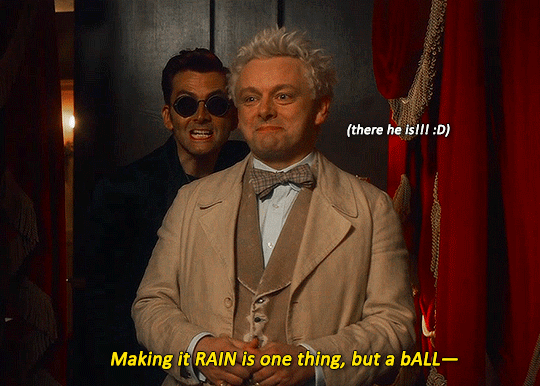
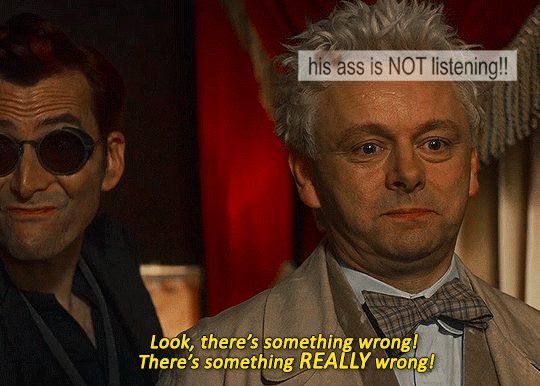
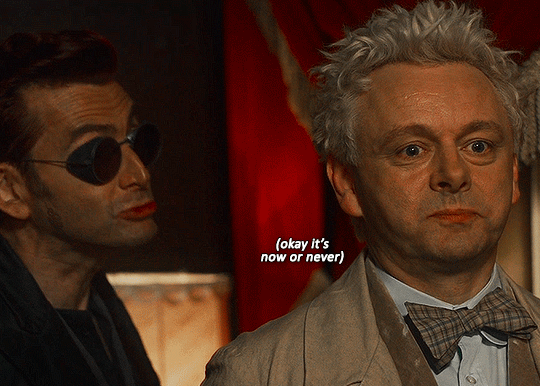
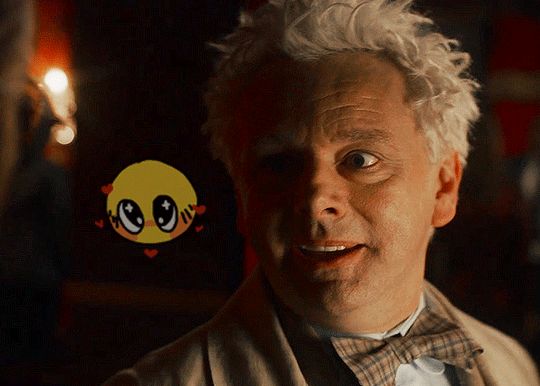
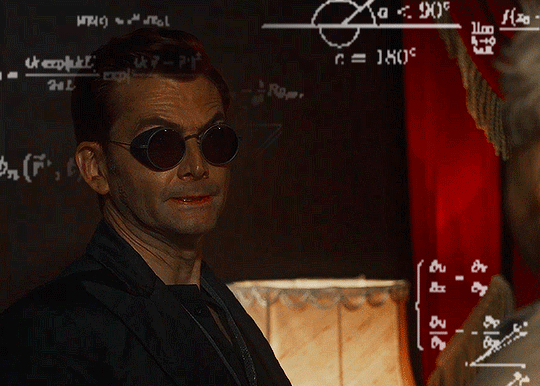
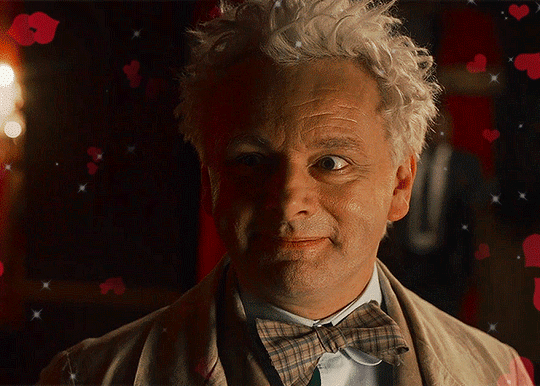
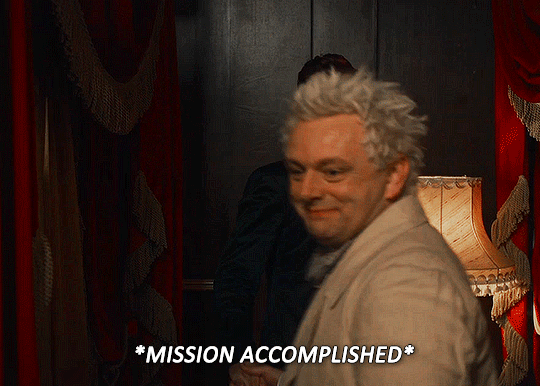
how to ask the demon you've been smitten over for 6000 years to dance: an angel's guide
bonus:
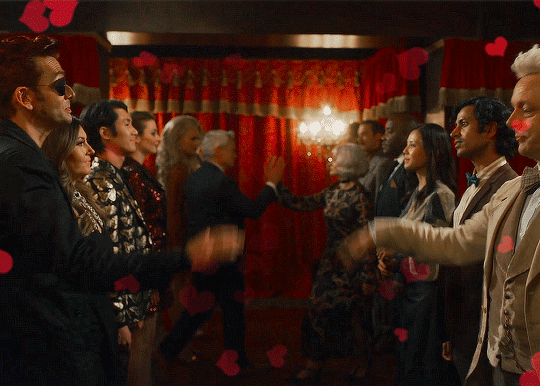
#goodomensedits#goodomensgifs#good omens#good omens s2#good omens spoilers#ineffable husbands#aziracrow#userkristi#userlauren#userstede#userisaiah#userelio#userhani#my gifs#edit: the old caption has been fixed!!! changed it to 'we' like god (neil gaiman) intended#EDIT EDIT: NEIL GAIMAN HIMSELF REBLOGGED THIS POST AND CONFIRMED ITS NOT 'WE' BUT 'YOU DONT DANCE' LIKE I HAD ORIGINALLY OKAY#im returning to my roots#(aka making gifs but adding my chaotic commentary and editing to it)#i wish i was at home i'd be able to use a better quality video but im also ~impatient~#hopefully no one beat me to the punch#because this scene is genuinely one of my favorites like look at azi look at his smile im gonna fucking cry :')))))#like michael sheen!!!!!!!! michael sheen i am banging at your door like a wild chimpanzee#the ACTING CHOICES#the way you can literally SEE his thought process and excitement over asking crowley to dance i am in shambles i really am
64K notes
·
View notes
Text
Ok so the running gag of Eddie losing his shoes was hilarious but why is none talking about how in the final act, when they are running from the xenophage in the lab, Venom grabs a pair of sneakers for Eddie. The fact that he noticed Eddies lack of shoes and in the middle of a life or death battle remembered “oh shit I need to get some foot protection for my husband” is absolutely adorable. Eddie is constantly on Venoms mind. He’s always thinking about him and how to help him and keep him happy.
#Venom is so sweet y’all#god they make me sick 🩷🩷🩷🩷#symbrock#venom#eddie brock#venom symbiote#venom the last dance#venom spoilers#venom the last dance spoilers
5K notes
·
View notes
Text















“May I rest my weary head on your shoulder?” (insp.)
In the Mood for Love (2000), Rafiki (2018), Cold War (2018), Your Name Engraved Herein (2020), But I’m a Cheerleader (1999), Moonlight (2016), Portrait of a Lady on Fire (2019), And Then We Danced (2019), Eternal Sunshine of the Spotless Mind (2004), My Own Private Idaho (1991), Anatomy of a Fall (2023), Lovesong (2016), God’s Own Country (2017), The Handmaiden (2016), Notorious (1946)
#filmedit#filmgifs#filmtv#anatomy of a fall#and then we danced#but i'm a cheerleader#cold war#eternal sunshine of the spotless mind#god's own country#the handmaiden#in the mood for love#lovesong#moonlight#my own private idaho#notorious#portrait of a lady on fire#rafiki#your name engraved herein#*#compilation*#films#probably the only time I’ll go over 10 gifs#I just felt compelled! (I have no real explanation)#anyways here’s something I’ve been thinking of making for years
4K notes
·
View notes
Text
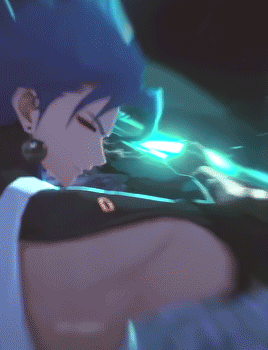
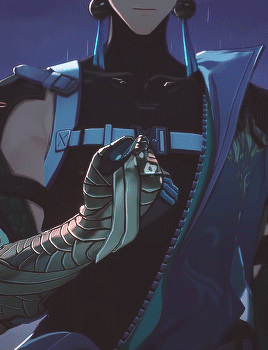
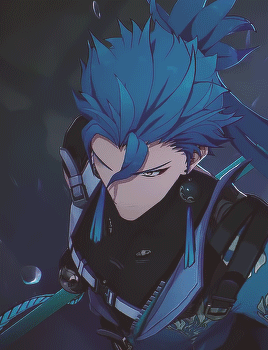
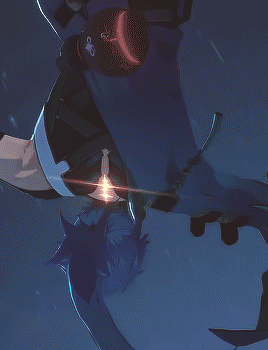
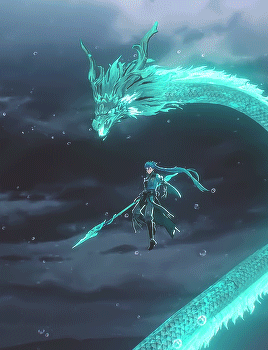
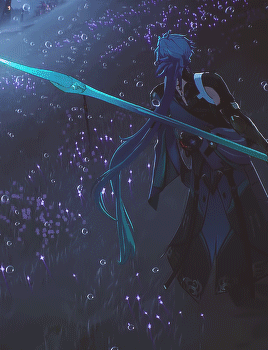
JIYAN ❖ THROUGH THE DARKEST OF NIGHTS
Jiyan, leader of the Midnight Rangers, acts with swift and resolute righteousness. He possesses the formidable ability to conjure a powerful Qingloong from the winds, making him invincible on the battlefield.
#wuwa#wuthering waves#jiyan#gamingedit#wuwaedit#flashing tw#m:gifs#m:*#as a viewer i very much appreciate the captions but as a giffer god damn it why directly on the video ajkdflajsdf#anyways. idk if it's an intentional design choice#but jiyan's fighting style with the dragon + lance and the dragon specifically following the movement of the lance#makes it look like he's fighting via dragon dancing#like you know the dance where usually multiple people hold up a long dragon puppet with poles#kinda cute tbh lol esp since otherwise ig he's supposed to have an edgier vibe#m:1k
4K notes
·
View notes
Text
#196#r196#death by glamour#undertale#mettaton#weiweiposting#god if i knew how to dance i would go fucking crazy whenever this song comes on
5K notes
·
View notes
Text
she do be hitting that yoinky sploinky
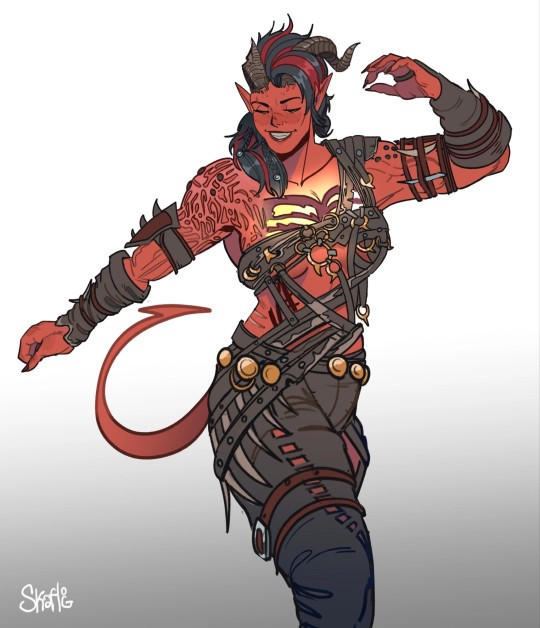
#art#drawing#digital art#fantasy#bg3#baldurs gate 3#baldurs gate fanart#baldurs gate iii#karlach#bg3 karlach#baldurs gate karlach#buff girls#buff women#tiefling#dnd#dungeons and dragons#baldurs gate#oh my god i love her#silly liitle dance
11K notes
·
View notes
Text



I would die for him actually
#eddie brock#venom the last dance#he is such a cinnamon roll#this is the man an alien rebelled against its entire race for#an honestly i get it#god he's so breedable#i love his little scrunchy faces#venom#venom let there be carnage
2K notes
·
View notes
Video
tumblr
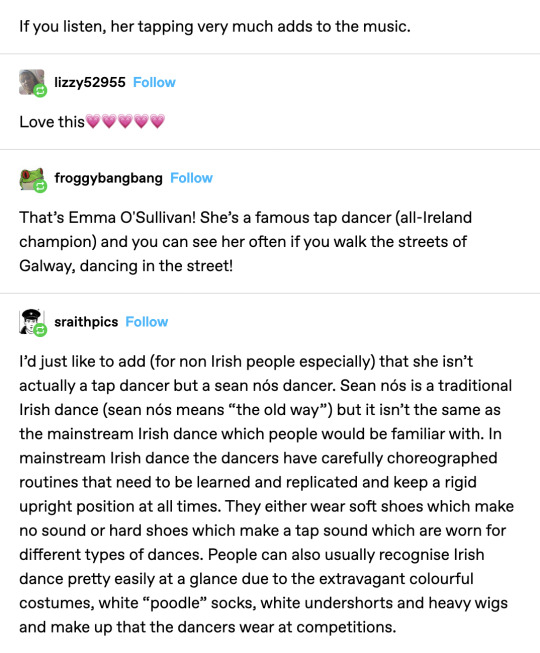
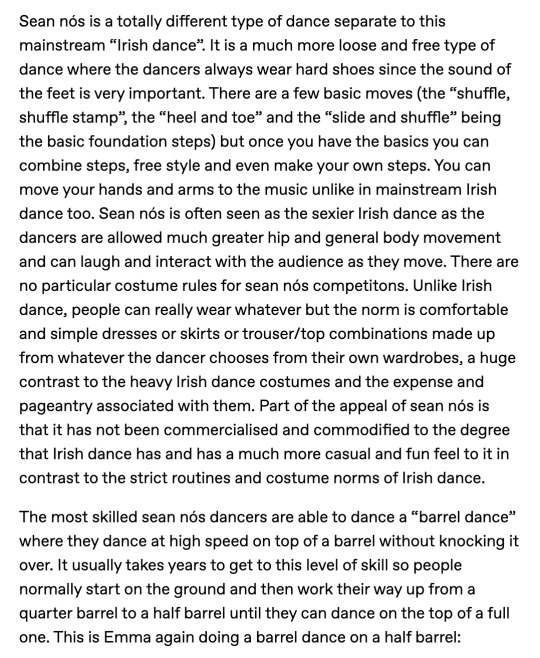


https://www.youtube.com/watch?v=GX3Z8qG7AKo
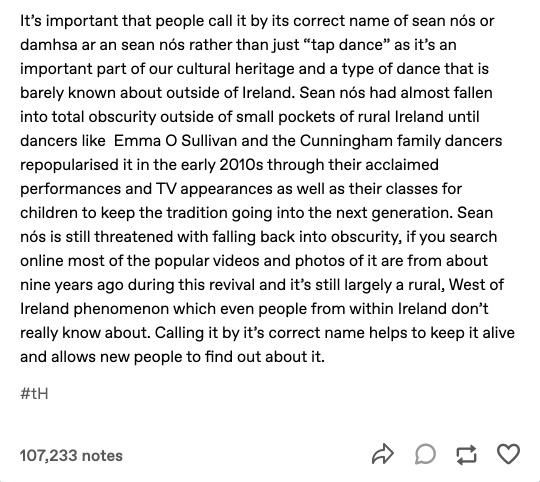
#recreation of this popular post#for my own reference#since tumblr won't let me reblog it#even though op is deactivated#and most of the content is thanks to the reblog anyway#https://sraithpics.tumblr.com/post/634277734381748224/froggybangbang-lizzy52955#dance#irish dance#on the one hand i'm glad the post is being shared around again#because i wouldn't have done this if i didnt like the post#but on the other hand dear god why did it have to be *my* post
26K notes
·
View notes
Text
This got me kicking my feet and jumping

#artists on tumblr#fanart#art#digital art#procreate#digital artist#im a simp#veddie#symbrock#venom the last dance#venom 3#venom symbiote#eddie brock#eddie and venom#sketch#digital painting#on god#Can y’all kiss?#like c’mon
2K notes
·
View notes
Text

Pedro vibing and Rosario caressing his cheeks like he’s a big kid 🥰
#Pedro Pascal#Rosario Dawson#ewan mcgregor#diego luna#also Diego looking amused by Pedro’s little dancy dance#god I love em all#also them all being character coded here EXCEPT for Pedro 🤣#Ewan fixing himself right and being prepped like Obi Wan would be to face the council#Diego stoic but also being subtly amused#Rosario being MOTHER like Ahsoka#Pedro just being Pedro#Din Djarin who?#Star Wars#obi wan kenobi#ahsoka tano#din djarin#the mandalorian#cassian andor
2K notes
·
View notes
Text
Novel Chaos
October is a month, all about fall, and Halloween, and (in Canada) Thanksgiving. In some years I've done Janelle Shane's Botober daily AI-generated writing prompts, though the shine is off of AI right now… (This year she recycled some older AI-generated text for the prompts and I don't blame her.) This year I didn't try to do daily writing, though I have been trying to do weekly writing at least, and post some of my writing exercises.
But right now I'm here to talk about the books I read during the month. (I started these monthly posts last November, so now I've been doing them for a full year!) Potential spoilers within for Jessie Mihalik's "Consortium Rebellion" series, Diana Rowland's "White Trash Zombie" series, and Jane Lindskold's "Firekeeper" series.
Jessie Mihalik: Chaos Reigning, completed October 3
I grabbed this one on impulse, and didn't think too much about it. After all, it's SF and not fantasy (even gaslamp fantasy) like the last book, and it would close off another trilogy. I've been kind of linking these books with the Rachel Bach trilogy in my head and trying not to read those too close together. In hindsight, as I was writing up the C.L. Polk book I read before it, one thing that these series do have in common is the romance elements. But thinking of it more, that's not enough to make them overly similar.
I'm not a huge romance reader. I have dutifully tried a few, but I have never felt particularly comfortable with the genre. I'm not saying that it's a bad genre, that romance books are bad and nobody should read them, or any of the wilder anti-romance viewpoints I've heard out there, but nonetheless the inclusion of romance tropes can detract from my enjoyment of a book. And maybe it's just the female-hetero-POV ones, appreciation of the male form and stuff, that gets me, maybe it's a lot of cultural conditioning on me, maybe it's a character flaw in me. But I don't care for it that much. I'm reading this anyway, though, aren't I? (Even if it's "in spite of" rather than "because of".)
Anyway, the series is about three sisters from one of these high-tech corporate Houses. This book focuses on Catalina a.k.a. "Cat", the youngest of the family, prone to being underestimated and acting all superficial, but as a child she was given secret (and illegal) genetic modifications to make her fast and strong. Her house, Van Hasenberg, is at war with a rival house, and Cat ends up going to a high-class multi-day party to try to get some more information. Her sister Bianca (from Book 2) insists she bring along a couple of bodyguards, and that she fake-date one of them so he'll have better access. Cat drags her feet but reluctantly agrees. (So it's not only a fake-dating romance and a bodyguard romance, but both at once!) Said bodyguard, Alex, also appeared in Book Two, though I only vaguely remember him.
During the party, assassins show up and try to kill Cat and several other nobles (including her friend Ying), as part of what turns out to be a coordinated attack on all the noble houses, and Cat is forced to go on the run and try to save the day, with Alex (and Ying's) help. In the process she finds love (though the full physical consummation gets interrupted several times before they finally manage it) and herself.
The romance feels a little…I dunno, smooth? I never get the sense that there's that many obstacles in their path, apart from perhaps Cat's own self-doubts and paranoia about her illegal mods being found out. And getting over her annoyance at Bianca foisting Alex and his partner on her in the first place. They didn't feel like serious problems. But it's okay, because I liked the SF plot well enough, so I enjoyed the book overall, and maybe I'll try the other trilogy we have of hers at some point.
Stephen King: Different Seasons, completed October 9
Now I realize that I have already read a Stephen King book this year, Under The Dome back in April. And it was technically two books, in paperback, at least. But you know, the guy doesn't stick to only publishing one book a year, so I'm not going to feel too bad about this. I wanted a book by a male author, and it's October so it's spooky season, and what with one thing and another, in my current schedule it'd be like seven more books before I could get an untyped male author slot to stick this into, and October will almost certainly be over by then.
It may seem surprising that I haven't read this one already. Well, as I may have mentioned before, I didn't really start reading King seriously until the 90s, by which point he already had a few books out, and I confess that I was mostly concentrating on novels. I did like Four Past Midnight, though, and I have been meaning to get to this one. I think we didn't even have a copy for a while, which may have held me back. And I ended up reading Skeleton Crew and Night Shift first. But now, here it is.
I'd consider this to really be the last book in my Stephen King backfilling. After this, I will have read everything up to, like, well, Lisey's Story. (Assuming you don't count Thinner. Or Black House. Shut up.) I've been trying to alternate backfilling with forward progress, but after this it will be full steam ahead! Ish.
I am already somewhat familiar with most of this book anyway. After all, three of the novellas were made into movies, right? Definitely "Shawshank Redemption", and "The Body" became "Stand By Me", and I think that I remember seeing ads for a movie called "Apt Pupil" which I'm assuming is the same. Only the fourth one, whose name I can't even recall offhand, I know nothing about. I haven't actually seen any of the movies, but quite frankly I'm pretty sure I remember the twist in "Shawshank Redemption", or least the movie, from some Cracked article years ago. I actually knew very little about the plot of "The Body", though, so I was looking forward to that one. The fourth one, I hadn't even heard of before.
What I guess I hadn't realized about this, though, is how mainstream these stories are. "Shawshank Redemption" (after hearing about the movie so much it seems wrong to call it "Rita Hayworth And Shawshank Redemption", too wordy) is a story about some guys in prison; "Apt Pupil" is about the teenager fascinated with Nazis, and "The Body" is just about some kids going on a cross-country adventure. "The Breathing Method" has some vague supernatural implications, in the mysterious nature of the gentleman's club our protagonist joins, so it is at least "uncanny", I suppose, and the story within the story has definite horror overtones.
So to some extent it's a bit of a letdown. "Shawshank Redemption" is mildly clever, I suppose, though once again I knew the twist at the end. "Apt Pupil" was mostly just sordid, with a pair of unsavoury characters who both take to killing off "winos" (revealing picture of how homeless people at the time were perceived--"winos" or "bag ladies", all of them the dregs of society who won't be missed), and while they get their comeuppance at the end, I did not enjoy following them for 180 pages. "The Body" was okay, I guess; I had seen the train bridge excerpt from the movie, and I was vaguely aware of the pie-eating contest scene as well, though I had no idea that was just from a story and not part of the actual events. (Yeah, two of Gordie's stories are included, and I couldn't tell you why he put in the other one because it didn't fit at all.) "The Breathing Method" is a story about an offbeat gentleman's club where they tell stories, which is a reasonably common trope, with an even shorter story about the titular method encapsulated inside it; the inner story is macabre, the other story a little light on conflict if heavy on atmosphere.
So now I guess I'm slightly more interested in the movies "Shawshank Redemption" and "Stand By Me", though probably not "Apt Pupil", and at least I've read it once and maybe that'll be it.
Jack L. Chalker: The River of Dancing Gods, completed October 12
I first encountered Jack L. Chalker through one of my friends reading one of the Well World books, and it looked kind of interesting so I tried it out. I loved it and read the whole series. I read his Four Lords of The Diamond series (though out of order at first because it was based on what the library had), and his Flux & Anchor/Soul Rider series, and basically everything of his I could find. His work was mostly based around transformation--whether it was the Well of Souls transforming you into some alien race, or some wizard from Flux, or whatever, people were constantly getting transformed, sometimes into animals, sometimes into sex slaves, sometimes into the other sex, whatever. I particularly liked the Well World because it was a planet made up of different hex-shaped artificial environments for a sampling of alien races, and I spent many happy hours trying to fill in the complete map and populate them with alien races from other books. I even tried to draw one or two of the aliens, though my artistic ability was never great.
At some point it all began to pall a bit, and I never finished his last series, and then he died shortly after that (I had the opportunity to meet him at the one Worldcon I attended, but I was too late to sign up for his Kaffeeklatsch so it didn't happen). His series did get a little samey, and later ones a little perfunctory. And it's been a while since I reread any of them. In recent years, with pressure to weed my collection a bit, I ended up just getting rid of some of the books and series I hadn't gotten as attached to (like the Changewinds series and Web of The Chozen). But some of them were kind of on the bubble so I wasn't quite sure.
This all heavily mirrors what happened with Piers Anthony, who was also one of my favourite authors around the same time; the big difference is that Piers Anthony didn't die (yet) and instead kept churning out books I was progressively less interested in, not to mention getting a little bit too interested in writing about relationships with young teenage girls. I reread his Incarnations of Immortality series a couple of years ago (and ended up just keeping the first book, I think, at the end). And now it's time for me to re-evaluate an old Chalker series.
The Dancing Gods series was intended as light fantasy, I guess. Most of what I remember about it is that our main characters are a couple of people from our world who cross over (making it a portal fantasy) to a fantasy realm where the rules are written down, literally, in a huge series of tomes that basically encapsulate all the fantasy clichés and tropes Chalker could think of. (Which reminds me a lot of Tom Sawyer's insistence on adhering to all those tropes and clichés in the prison rescue in Huckleberry Finn.) And those rules literally become the way the world works, like laws of nature. So it's intended to be a literal parody or pastiche or something. But I remember one or two elements from the books that have lingered with me over the years, so I decided to reread them and see if they had any overall redeeming value.
It's not particularly madcap or anything, this isn't Craig Shaw Gardner or Robert Asprin here, and it takes a while to get past the part where the fantasy realm wizard (Throckmorton Ruddygore) convinces our protagonists (Joe and Marge) to leave their world behind (where they were about to die in a road accident anyway) and cross over. And then they need to acclimatize to the world and train (Joe as a barbarian, Marge as a sorceress, ho hum--this kind of thing is why I was pleasantly surprised in Barbra Hambly's Darwath series when the woman became the fighter and the man became the wizard). Then we get some transformations--Joe because he runs into a Circean witch and gets turned into a bull, and Marge because she's been infused with faerie blood to speed up her training.
Our actual quest has to do with retrieving a magic lamp that grants wishes (though the twist is that it only grants you one wish for free, and if you make a second wish then you swap places with the genie), and it's also a little slow to get going, with a few random incidents, but the genie section is nicely interesting, and then we get the climactic battle with the dark lord's armies at the end. And the promise of sequels, of course, which is also in The Rules.
It's kind of on the bubble as far as keeping it goes. It's kind of short and isn't particularly funny, but it feels like it has something going for it other than trying to be funny. I guess I'll see how the other books in the series hold up. But I can tell that this likely won't be the only one in the series I keep.
Wesley Chu: The Art of Prophecy, completed October 19
After a reread, according to my cycle, it's time for either trying a book by a new author or reading a diversity book. I knew it was supposed to be a male author, and so I ended up grabbing one of the few male diversity books I have available right now, from the recent Wesley Chu series, The War Arts Saga. And only belatedly did I think to myself, wait, was it supposed to be trying a new author instead? and sure enough, it was. But oh, well, it'll be fine.
I've tried a few other Wesley Chu series, but I don't know if I've finished one yet. I read Time Salvager, but haven't been able to get a copy of the sequel Time Siege yet. I read The Births of Pi and The Deaths of Pi, but I wasn't sure about continuing to The Rebirths of Pi so I don't have that one. But this one looked interesting and I decided to pick it up, even in trade paperback. My wife has already read it and we've bought the sequel (we thought it was just a duology, but apparently there's a third one, which I suppose is not unexpected), so the chance that I will finish it are pretty decent, as long as this one doesn't suck or something.
The basic premise is that there's a teenage boy, Wen Jian, who has been prophesied from birth to be the one who defeats the Great Khan of the Katuia, but when warmaster Ling Taishi checks up on his training, she discovers he's being pampered and pulled different ways by too many competing masters, so she takes over instead. And then…the Great Khan gets killed in a random skirmish while he's drunk out of his mind, and the ruling Dukes decide that the prophesied hero is too much of a liability and they need to dispose of him, and Taishi and Jian go on the lam to try to figure out what went wrong with the prophecy.
The setting seems fairly medieval-Chinese, at least at first. And then we get POV from some of the Katuia refugees, on the "Sea of Grass"…which has grass blades large enough to climb and jump off of. And frequent sinkholes into what seems to be an actual sea underneath the Sea of Grass. And also the nomadic Katuia travel around the Sea of Grass in some kind of mechanized cities, possibly with steam technology? Also there are three moons. So it seems at least secondary-world, and an outside chance that this is one of those supposed secondary-world fantasies which is actually an SF colony world? So the setting is interesting, and by the middle of the book we end up cycling POV between the three main characters (Jian, Taishi, and Salminde of the Katuia), often with good chapter-end cliffhangers, and I didn't end up finding any of the POVs a real slog to get through (always a risk with multiple-POV books).
In the end it's pretty satisfying, with plenty of high-energy martial arts fights with bonus magic powers that work well on the page. My biggest gripe is that while there is a lovely illustrated map at the front, it has some huge omissions. Where's the Sea of Grass, for instance? Any time there's a map, it should have all the places in the story on the map so that you can always look them up.
Diana Rowland: White Trash Zombie Apocalypse, completed October 23
Time for another non-male author, and I felt like in honour of the spooky season it should be something…with zombies, maybe? Which either meant the fourth Mira Grant zombie book, Feedback, or the next Diana Rowland White Trash Zombie book. And I feel like I have kind of been neglecting the Diana Rowland (even if her zombies are less horror-y), so I went with that one.
Diana Rowland is on the (very) short list of authors that I discovered when I went to the World Fantasy Convention when they were in Calgary and ended up at the banquet sharing a table with a number of strangers--and since this was WFC, most of them were authors. I guess I don't remember everyone who was at the table, but Carrie Vaughn was definitely there (I had read her first book already so I didn't technically discover her there), as well as Mary Robinette Kowal (as I believe I mentioned previously) and also Diana Rowland. Her first book hadn't actually come out yet, but I made sure to pick it up as soon as it did. That was the first book of her Kara Gillian urban fantasy series, Mark of The Demon, and I've been following that closely since it came out.
It's reasonably common for an urban fantasy writer to start a side series, either with a different main character in the same world (like Patricia Briggs and Faith Hunter have done), or in a completely different world. (Yes, I suppose in general it's not unknown for a writer to have two series going at the same time, but work with me here.) If the series are in the same world, when I will generally try to keep up with them in chronological order as they relate to each other, like with the Patricia Briggs "Alpha & Omega" series relative to her Mercy Thompson books. (Publication order often works too, of course.) Otherwise I'll tend to stick with the one series as long as I'm enjoying it, and then maybe jump ship for the other one if the first series starts to pall. In this case, it was more that the Kara Gillian books were coming out more slowly, so I had time to go and read the White Trash Zombie ones in between. (I was following Rowland on Facebook back when I was on Facebook, and it sounds like she had a lot of crap going on in her life, so no judgement.)
Anyway, the titular character of the White Trash Zombie series is Angel Crawford, a low-income high school dropout (in Rowland's home state of Louisiana) who one day wakes up and finds out that she's been turned into a zombie. These are not supernatural zombies, as far as I can tell, nor are they mindless zombies--they've been infected with a parasite that requires them to consume brains to stay healthy. If they consume enough, then they can even have some super-strength, -speed, and -healing abilities, and the potential for outright immortality. (And, of course, if they don't, then they are overcome by insatiable cravings until they start attacking people and trying to eat their brains.) It turns out that she actually had gotten in an accident and a good samaritan had given her the zombie parasite to heal her; later she got hooked up with the ideal zombie job, working in a morgue, where there's lots of discarded brains for the consuming. She meets up with her saviour and other powerful zombie figures, and has to deal with those who want to use zombies for their own nefarious ends.
So yes, zombies are being rehabilitated into "they're also people with special nutritional needs". And unfortunate instinctual behaviours if those needs aren't satisfied… Does that make them allegories for drug addicts? So far, at least, it seems that they can't just "kick the habit". And it seems like a harmful stereotype to say that drug addicts turn into ravening monsters when denied their fix. But perhaps it's drawing some parallels here anyway? Angel was a drug user before her zombification, and now if she does drugs or even drinks or smokes, all it does is use up her supply of brain prions faster.
The titles from this series are often references to other titles--My Life As A White Trash Zombie, Even White Trash Zombies Get The Blues, How The White Trash Zombie Got Her Groove Back, even White Trash Zombie Gone Wild… This one is more of a stretch. After all, this is not the last book in the series, and there's no apocalypse. Angel does get caught in a flood at some point after days of torrential rain, which I suppose is mildly catastrophic, at least, but mostly I guess the title is justified by the fact that, in the background of events, there's a movie being filmed at a nearby high school, "High School Zombie Apocalypse!!" (I know titles are hard, especially when you establish a strong theme and then you have to stick with it even when it doesn't apply…)
Overall I liked the book; Angel is starting to feel less like just "white trash" and integrating into a new community (of zombies) that accept her for what she is. She goes through a lot, but comes out stronger. But I still want to finish the Kara Gillian series before I go on to the next one…
Jane Lindskold: Wolf's Head, Wolf's Heart, October 31
Time for another female author, and I felt like maybe it was time for one of those big thick epic fantasies, possibly one that has been sitting on my shelf for a while.
Jane Lindskold has been around for a while, but I haven't actually read much of her. I'd first read Marks of Our Brothers from the library, which I seem to recall was SF, and not much else about it. She did a collaboration with Roger Zelazny called Donnerjack which I think we have but I haven't read. At some point she started coming out with this big thick fantasy series about a girl raised by wolves or something, and eventually I read the first book, Through Wolf's Eyes. It was somewhat on the bubble for me, which is why it's not until nine years later that I'm getting around to reading the next book. (It is also, as I mentioned, big thick fantasy, almost 800 pages, and Goodreads Challenge has been skewing my reading choices towards shorter books, so maybe that hasn't helped.) And this book also came out a while ago--in the acknowledgements section the author talks about how difficult the past year has been, and it turns out that that past year was 2001 (in which, famously, things happened), so it's not a classic fantasy series from the 80s or anything, but it's still less recent than a lot of the books I read these days (2010s vintage, in particular, for the urban fantasy).
There seems to be a trope out there, not all that common but still not unknown, of having a character with an interesting background, perhaps raised in solitude or something, who then ends up getting dropped into what seems like a fairly generic fantasy scenario. C.J. Cherryh's Fortress In The Eye of Time, for instance, or Michelle Sagara's "The Sundered", maybe Gwyneth Jones's Divine Endurance (it's been a while since I read it), Rebecca Bradley's "Lady In Gil" series… Sometimes the fantasy scenario gets a boost from the interesting character, and sometimes it drains away all their interestingness and results in generic plot.
Anyway, it's been a while, obviously, so we'll see how easily I can get reoriented into the actual story. It turns out that our wolf-girl, Firekeeper, showed up in the human kingdoms with her giant wolf friend, she encountered human civilization for the first time, made some friends, and meanwhile in local fantasy politics there was some strife which ended in a regime change, and that's book one. In general we seem to spend as much time with Firekeeper's friends as we do with Firekeeper herself, but the reintroduction here was pretty good. We have Elise, the minor noblewoman who's kind of in love with a lower-class healer guy who everyone calls Doc, and we have Derian, the son of a successful stablekeeper who now has the ear of a king. We also have some bad guys, not least the deposed leader from the first book. There's some weddings, there's assassination attempts. And there is, apparently, a history of colonialism.
See, the kingdoms here are actually more or less colonies from overseas, though I think they've lost contact with the original kingdoms. There was a big plague which happened a century ago and preferentially killed people with magical talent, and as a result magic is generally distrusted and magic-users considered evil. And also, the sentient animals (not just wolves, but all sorts of birds and mammals and maybe even reptiles, idk) were kind of driven out of the coastal realms by the humans, particularly the mages, back in the day. Oh, the animals fought among each other, too, but they're very ashamed of it. (Totally not First Nations-coded here, oh no.) The humans have mostly forgotten about them and while they did want to see Firekeeper back with her people, they're not particularly eager to remind the humans at large about their existence.
Meanwhile, deposed monarch took some magic stuff with them when they fled. The new monarch kind of wants it back, and the animals want Firekeeper to confiscate it from the humans and bring it to them for safekeeping, and there's our plot. They end up having to go to the neighbouring realm of New Kelvin, where sorcery is much more respected, though it turns out they don't have any of it themselves. The primary antagonist, Lady Melina Shield, is seen in the POV of a couple of vaguely villain-coded characters, but we don't get her POV directly, which I think is quite effective, since she is clearly an accomplished (and possibly magically-aided) manipulator.
Firekeeper is a central character, but not necessarly the main one, though she does have a character arc, as does Elise; Derian, not so much, but it's fine. The main climax of the book seems to come about two-thirds of the way through; there's one after it, but it has lower stakes and is more of an anticlimax. Overall I found the book charming and almost cozy in the early parts, with more action and tension coming later. I feel better about the series now and am more inclined to continue on, perhaps in less than nine years.
For nonfiction, I'm about halfway through Ed Yong's An Immense World, but I took a break to read some more Marvel comics (up to May 1994), and cut down on the puzzle games a bit. Hopefully I'll finish An Immense World before the end of the year at least, and I'm also feeling like reading some more from that Love & Rockets bundle sometime soon.
Also, we did watch "Stand By Me" on Halloween, and now I'm beginning to think that right after reading something is not the best time to watch the movie adaptation. I enjoyed River Phoenix and Wil Wheaton's performances, but mostly there was a lot of trying to remember if it was exactly the same as the novella or not. (And similar effects with our watching the "Under The Dome" TV series. That's on the back burner now as we power through Series Seven of Doctor Who from the library, though.)
#books#reading#Jessie Mihalik#Consortium Rebellion#Diana Rowland#White Trash Zombie#Stephen King#Jack L. Chalker#Dancing Gods#Wesley Chu#Jane Lindskold#Firekeeper Saga
0 notes
Text
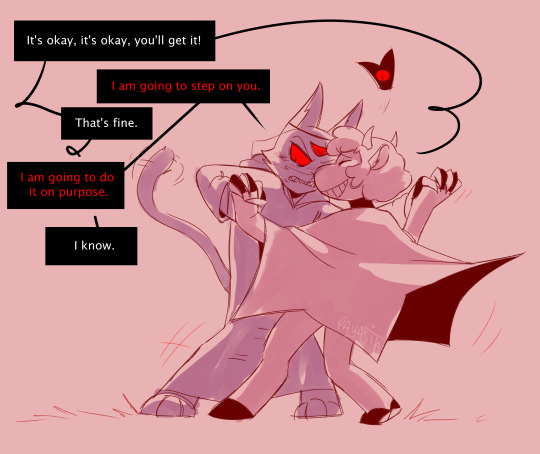
two-step
#cult of the lamb#cotl#narilamb#doodles#maybe future fic thing. maybe Not#dancings equally fun to write as it is to draw#its like 'OH THANK GOD. YOURE BOTH CONSTANTLY MOVING. I CAN NATURALLY BREAK UP THE DIALOGUE ON THE FIRST PASS'#pink be upon ye
4K notes
·
View notes
Text





Lily Gladstone as Jax Fancy Dance (2023), directed by Erica Tremblay
#lily gladstone#fancy dance#lgladstoneedit#filmedit#filmgifs#filmtv#directed by women#*#thank you erica you are my god#please support this movie in theaters or on apple tv+!#it's really good!#my mom gave it two thumbs up
7K notes
·
View notes
Text
the composers waltz: leyendecker advert study



#unfortunately this is me coming out as an arkayne enjoyer.#i just think the obsession a mad god has for an ant that could be so easily crushed beneath his heel is attractive#no one look at me.#malevolent#malevolent podcast#arthur lester#kayne#kayne malevolent#john malevolent#<— he’s here in spirit. and he refuses to take part in this dance lmao#kayne fanart#arthur lester fanart#art#artist on tumblr#digital art#digital painting#malevolent fanart
925 notes
·
View notes
Text


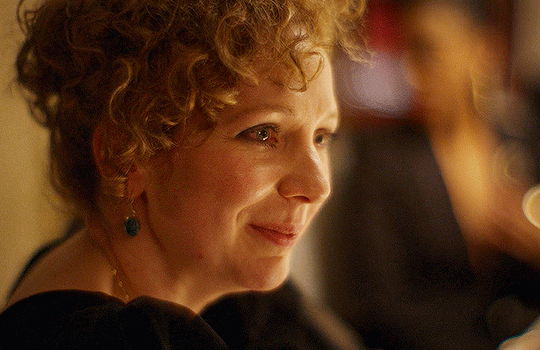




LIZZIE VEREKER & FREDDIE JONES in Rivals (2024) I hope you don't mind, I read your chapters. They were brilliant and sexy... like you.
BONUS: Rupert rooting for them

#rivals#rivals 2024#rivalsedit#tvedit#cinematv#lizzie x freddie#dailyflicks#otpsource#perioddramaedit#perioddramasource#filmtvtoday#romancegifs#cinemapix#userstream#filmtvcentral#lizzie vereker#freddie jones#katherine parkinson#danny dyer#by.athena#god this pairing is consuming me right#honestly nothing better than going into a show knowing absolutely nothing about it except one actor you're obsessed with#(in this case david tennant)#and coming out obsessed with a bunch of different characters and loving the story in general#this show is like crack to me rn#esp that scene where lizzie bumps into freddie at the party and they start dancing together OH GOD
849 notes
·
View notes